Carnival is the time of year when ordinary citizens get to step out of line. As Lent is approaching, they get a chance to disobey societal rules and make noise, sing, eat and drink until the cows come home.
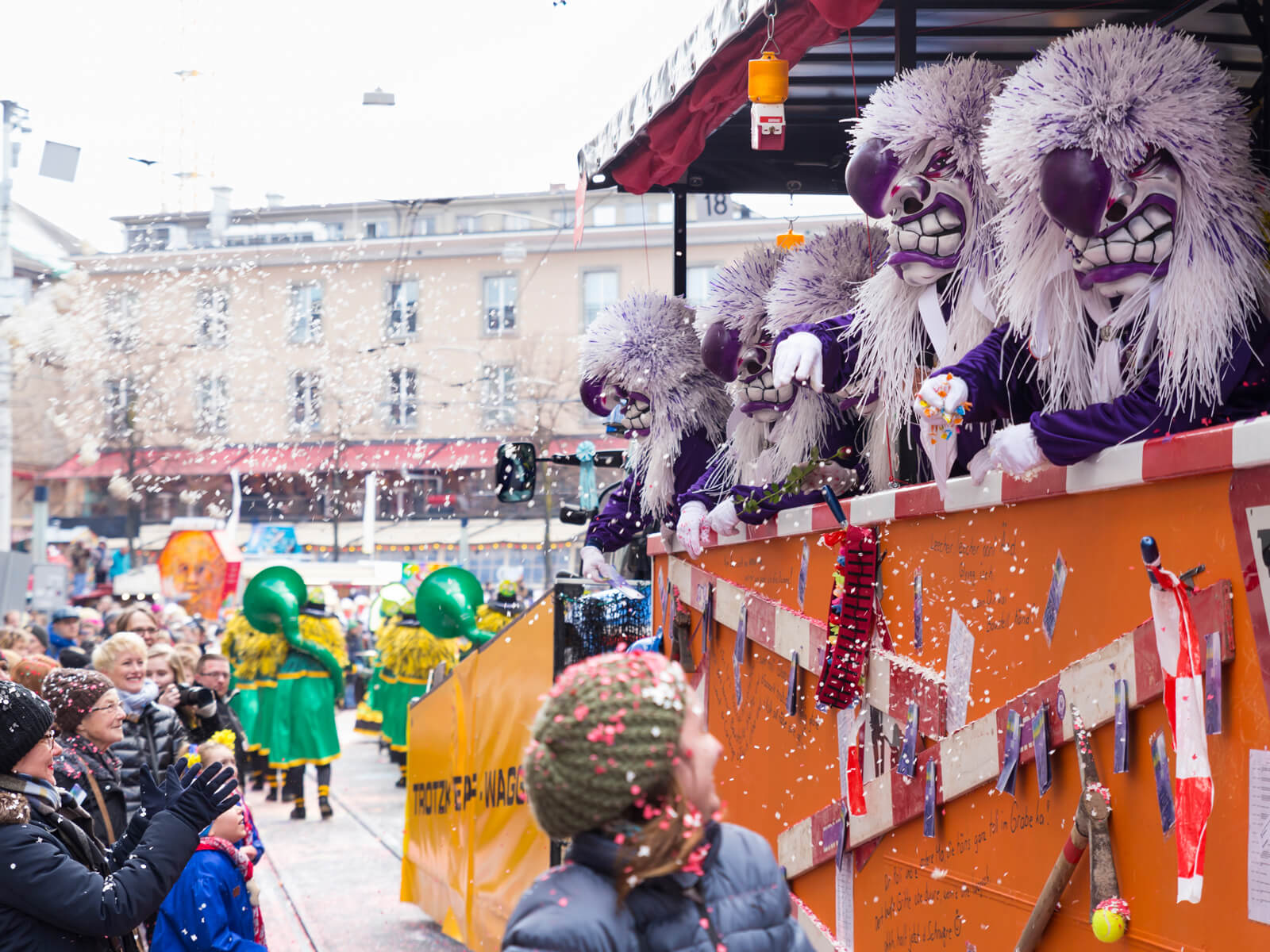
Here's a Q&A with the most common reader questions about Switzerland carnival traditions.
When do Switzerland carnival traditions take place?
Beginning on Ash Wednesday and lasting through Easter, the Christian calendar demands a time of Lent. As a precursor to the 40 days of fasting, most regions of Switzerland have developed lavish excesses.
Switzerland carnival traditions take place during the one-week period from Dirty Thursday (“Schmutziger Donnerstag”) to Ash Wednesday. Since Ash Wednesday is 40 days before Easter (not counting Sundays) and the date of Easter varies, carnival season is different every year.
In fact, you may come across carnival events as early as November 11 at 11:11 AM, the day many Swiss consider to be the beginning of the “fifth season” of the year.
How do the Swiss celebrate carnival?
During carnival, most everything is allowed - especially eating sugar and meat, drinking alcohol and celebrating. Switzerland’s carnival hotspots have elaborate parades featuring masked marching bands. Meanwhile, some small towns have more peculiar rituals.
Contrary to popular belief, the roots of Swiss carnival traditions are not based on Pagan rituals to chase away winter. (There are numerous traditions in Switzerland to chase away winter, however.) Instead, carnival has its roots in Christianity and the coming season of Lent.
An interesting note: during Reformation, many Swiss towns were forced to give up their carnival traditions as part of turning protestant. Basel is an exception as its military parades along with the Vogel Gryff ritual kept carnival alive.
Lucerne, on the other hand, stayed catholic; carnival remained an annual tradition. In Bern, where carnival had disappeared, the tradition has only returned in 1982.
Why is Fat Thursday called Schmutziger Donnerstag in German?
In the week leading up to Lent, it was common to cook with lard and oil. The idea was to replenish the body’s own fat deposits before going into fasting.
The old German word for fat is “Schmotz”, which is why the name “Schmutziger Donnerstag” was coined: Fat Thursday. To make matters confusing, the word “Schmotz” rather resembles “Schmutz” (dirt) in today’s German.
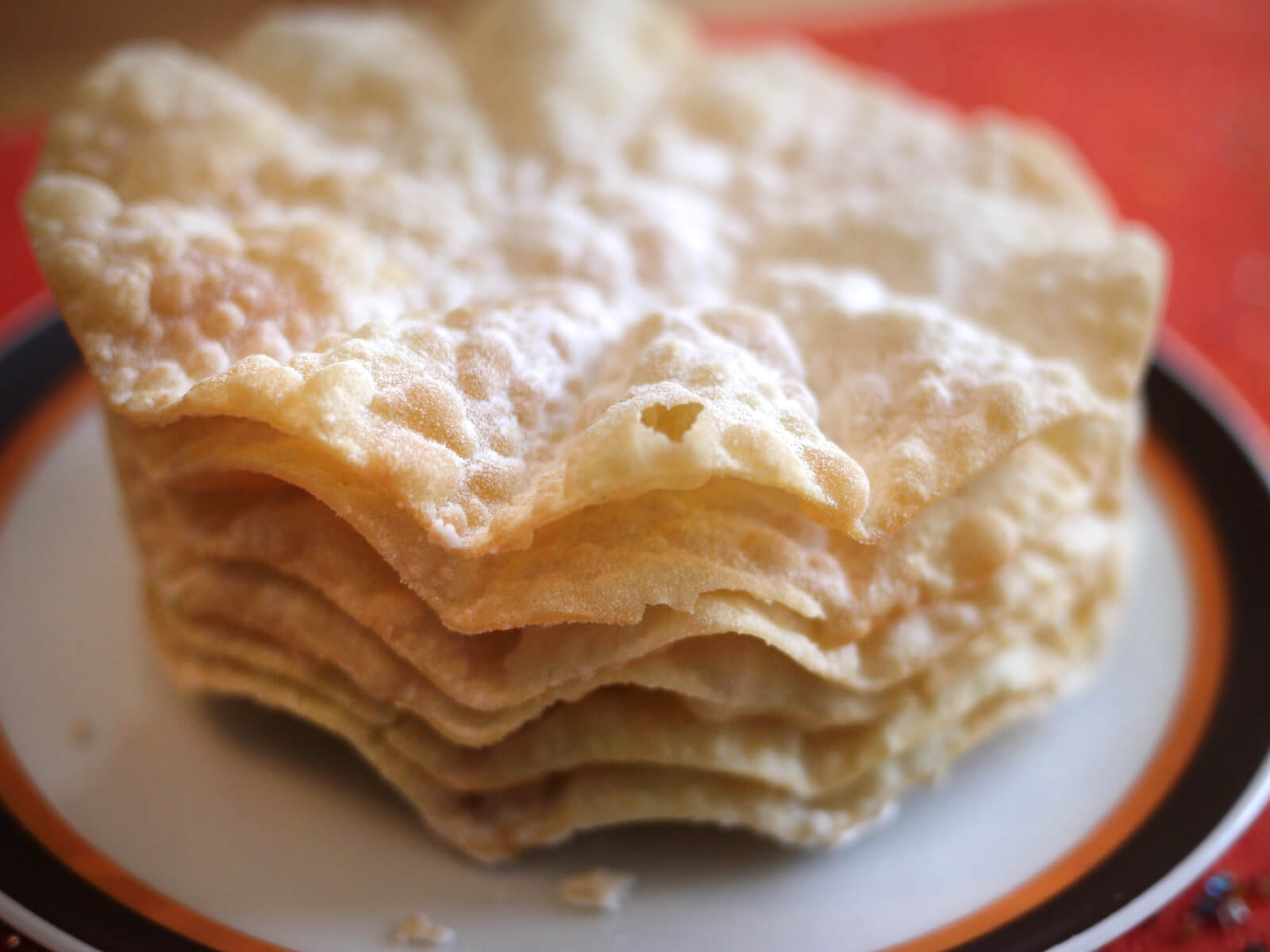
Why is carnival called Fasnacht in Swiss German?
For a long time, it was believed that the German word for carnival meant “Fassnacht” - Night of the Barrel. Much rather, the term “Fasnacht” is derived from the idea of fasting.
The climax of carnival festivities takes place during the night of Fat Thursday. In old German, “Fasta” means fasting time and “Naht” stands for night - hence “Fastnacht” means Fasting Night.
Today, the term “Fasnacht” wraps up the entire week leading up to Lent. And in Germany, carnival is commonly referred to as “Fasching” or “Karneval”.
What in the world is Guggenmusik?
Good question - it sure is a tongue twister! Guggenmusik is the term for costumed brass bands. Unique about this carnival music is that it is slightly out of tune while remaining harmonic.
Guggenmusik is most commonly played with brass instruments, pipes and percussion instruments. The most frequently used instruments are kettledrums, trumpets, tubas, trombones or cymbals.
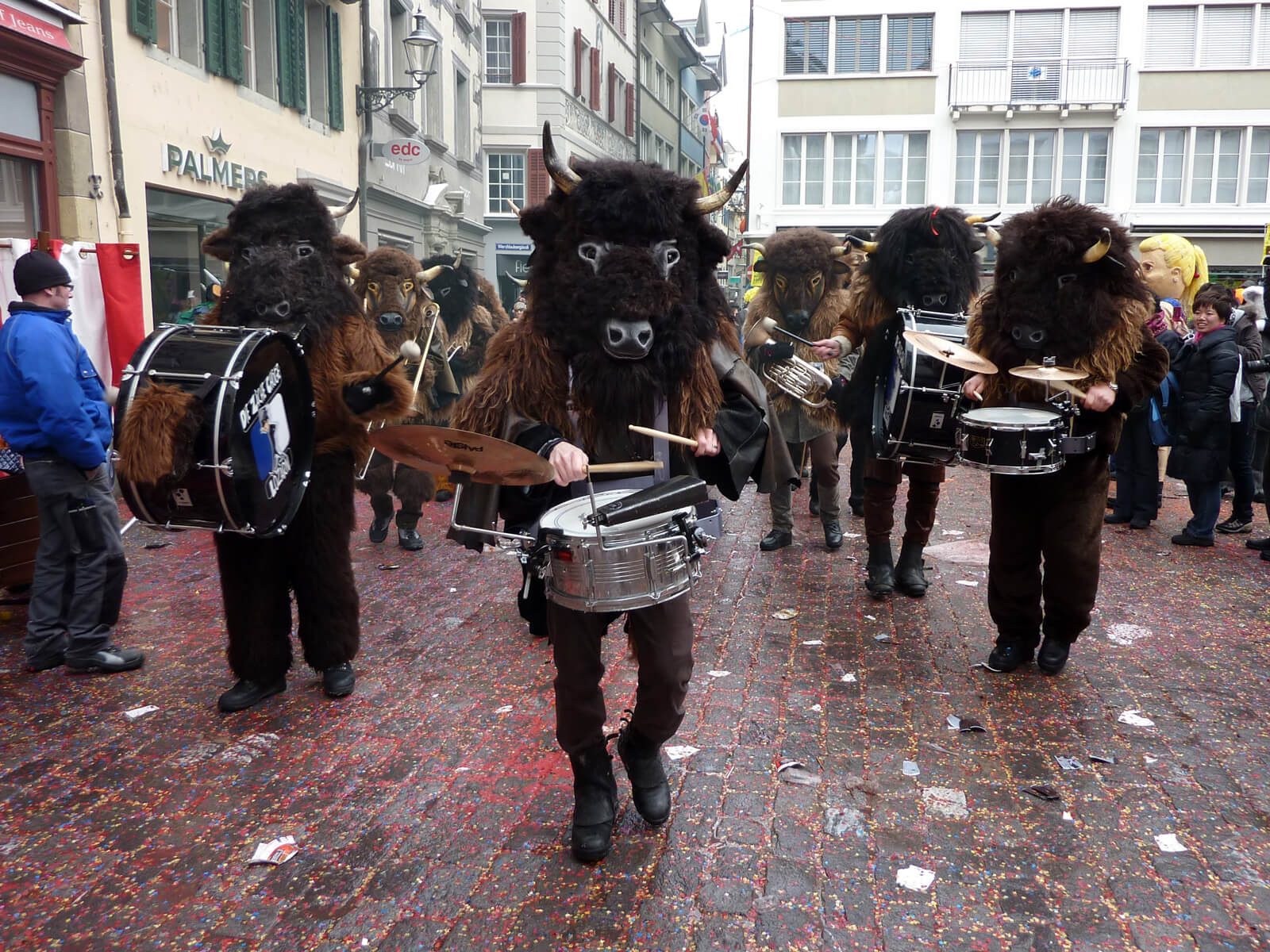
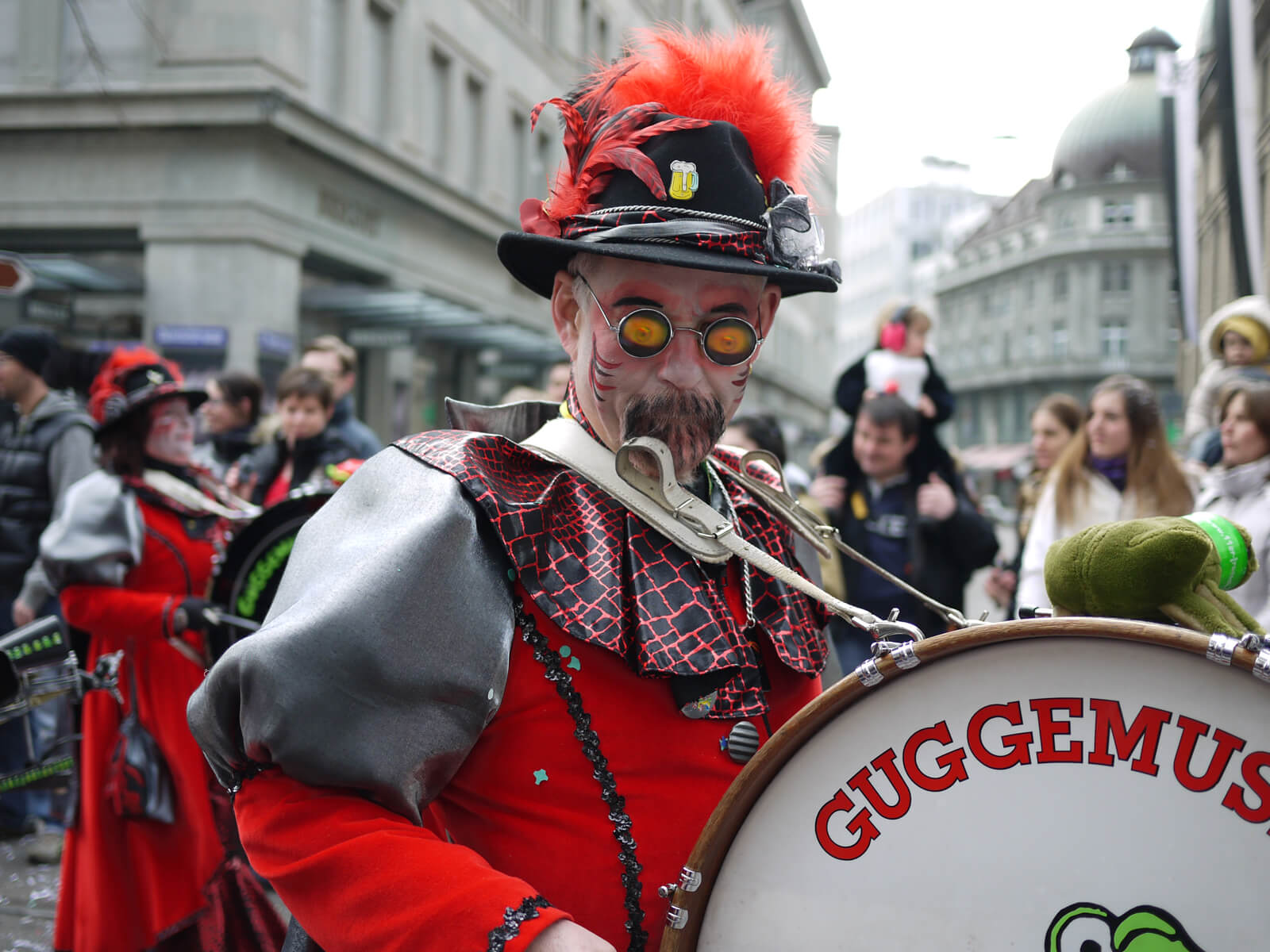
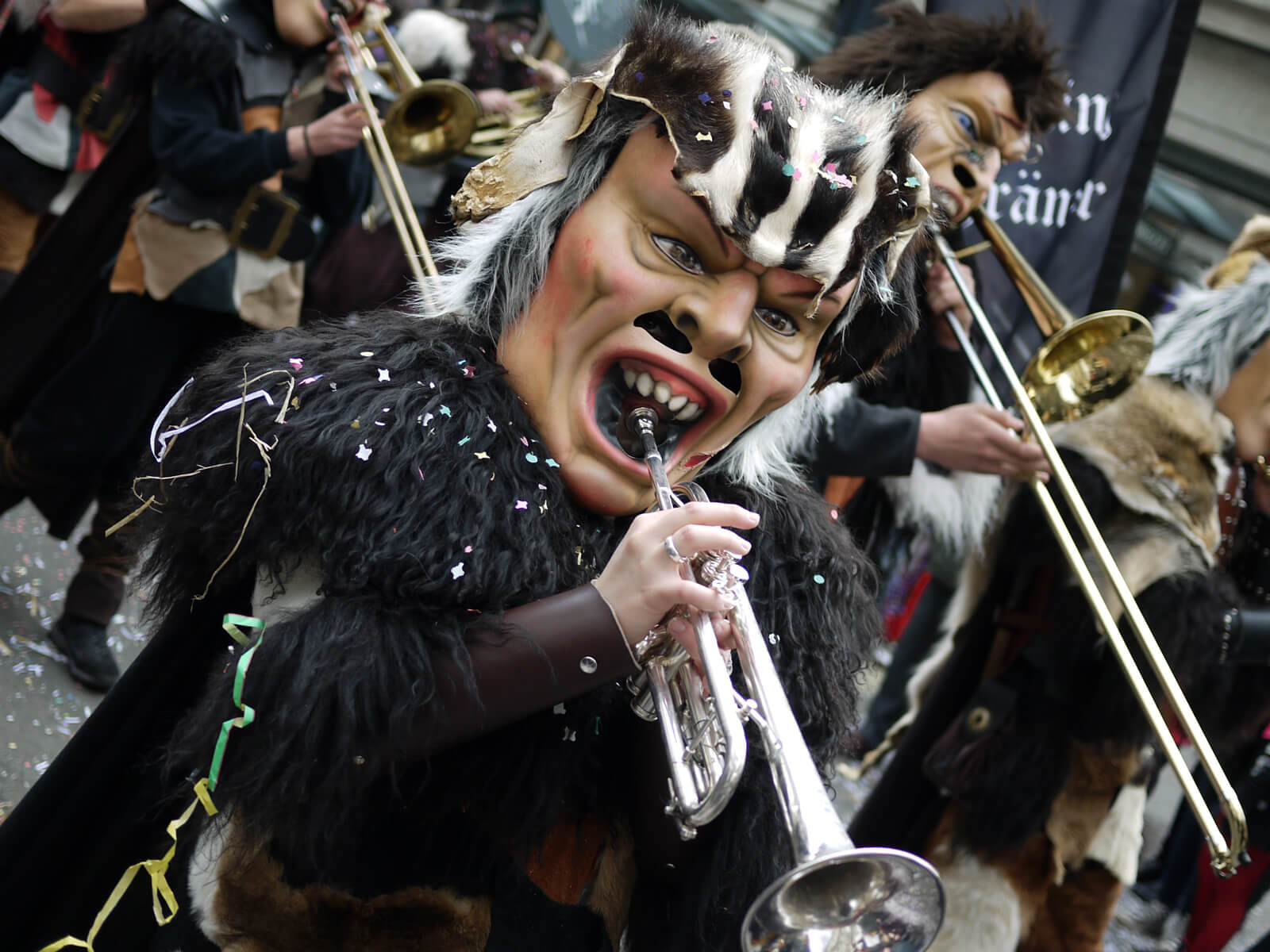
Where do the biggest carnival parades in Switzerland take place?
Ranked by size, this is where to find the largest carnival parades in Switzerland:
And why do the orderly Swiss allow this confetti mess?
Because they have top-notch cleaning crews eagerly awaiting the last Guggenmusik trumpet tune to fade! Then, they go to town and just a few hours later, the streets will appear cleaner than ever...
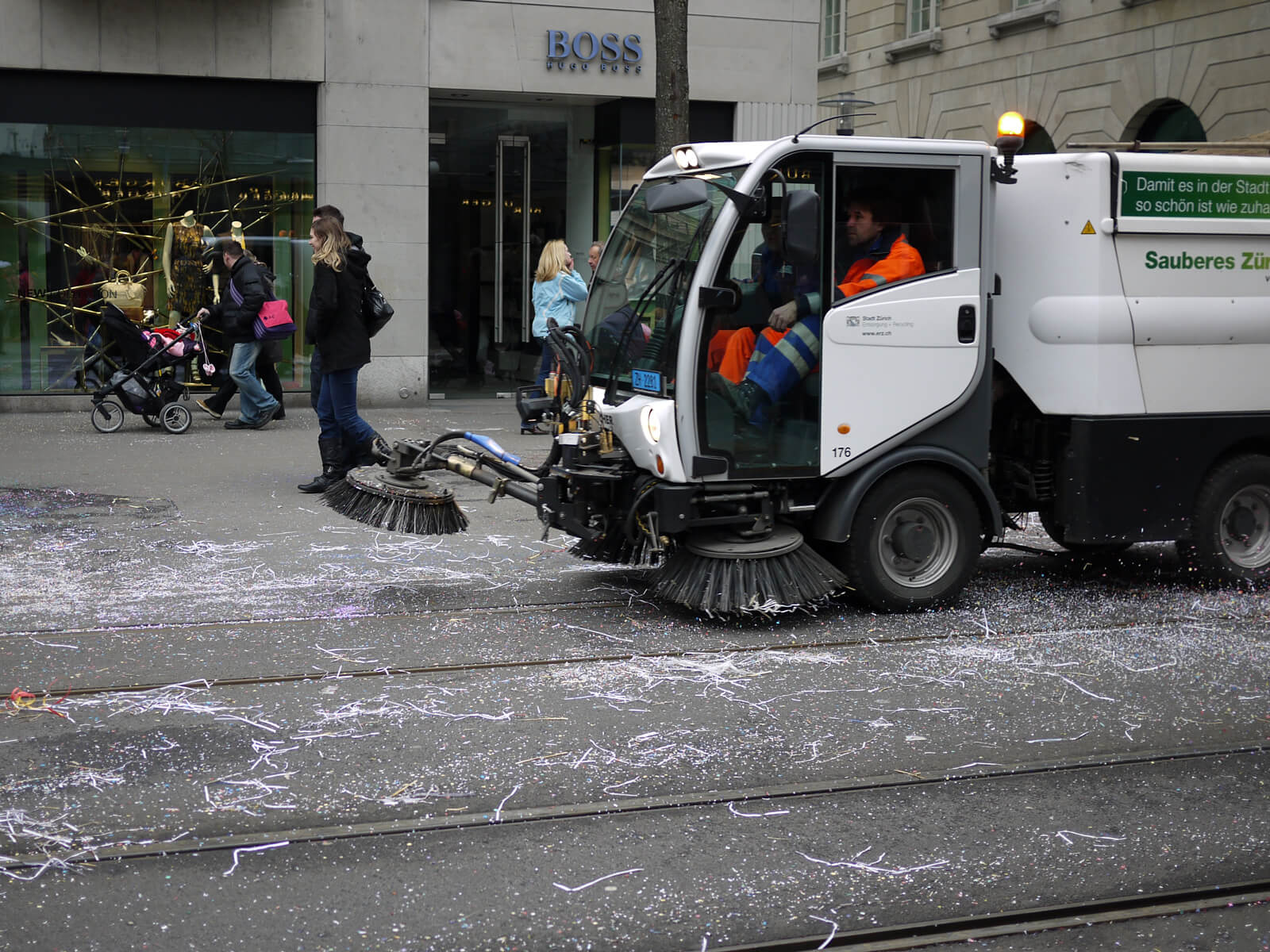

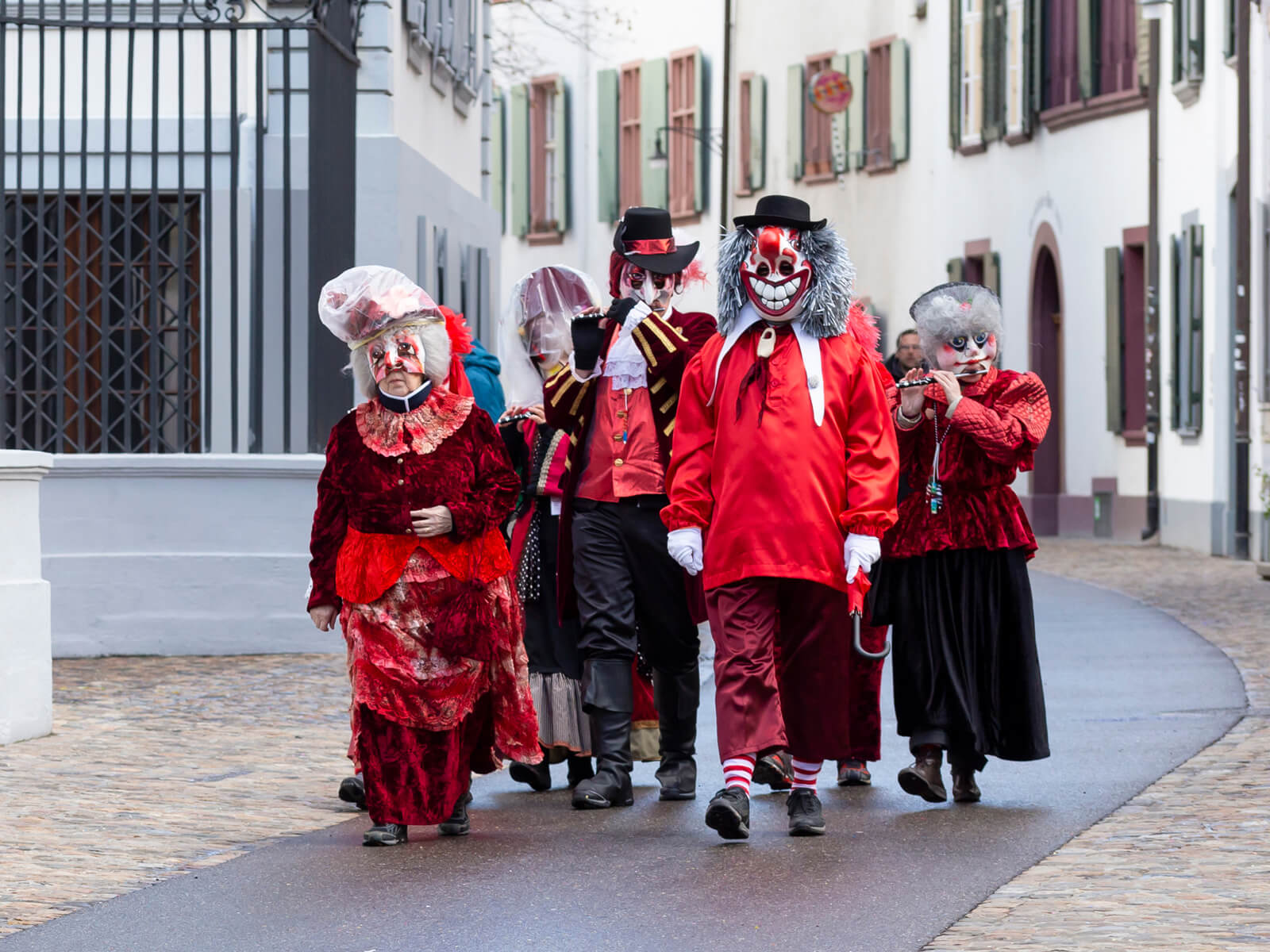
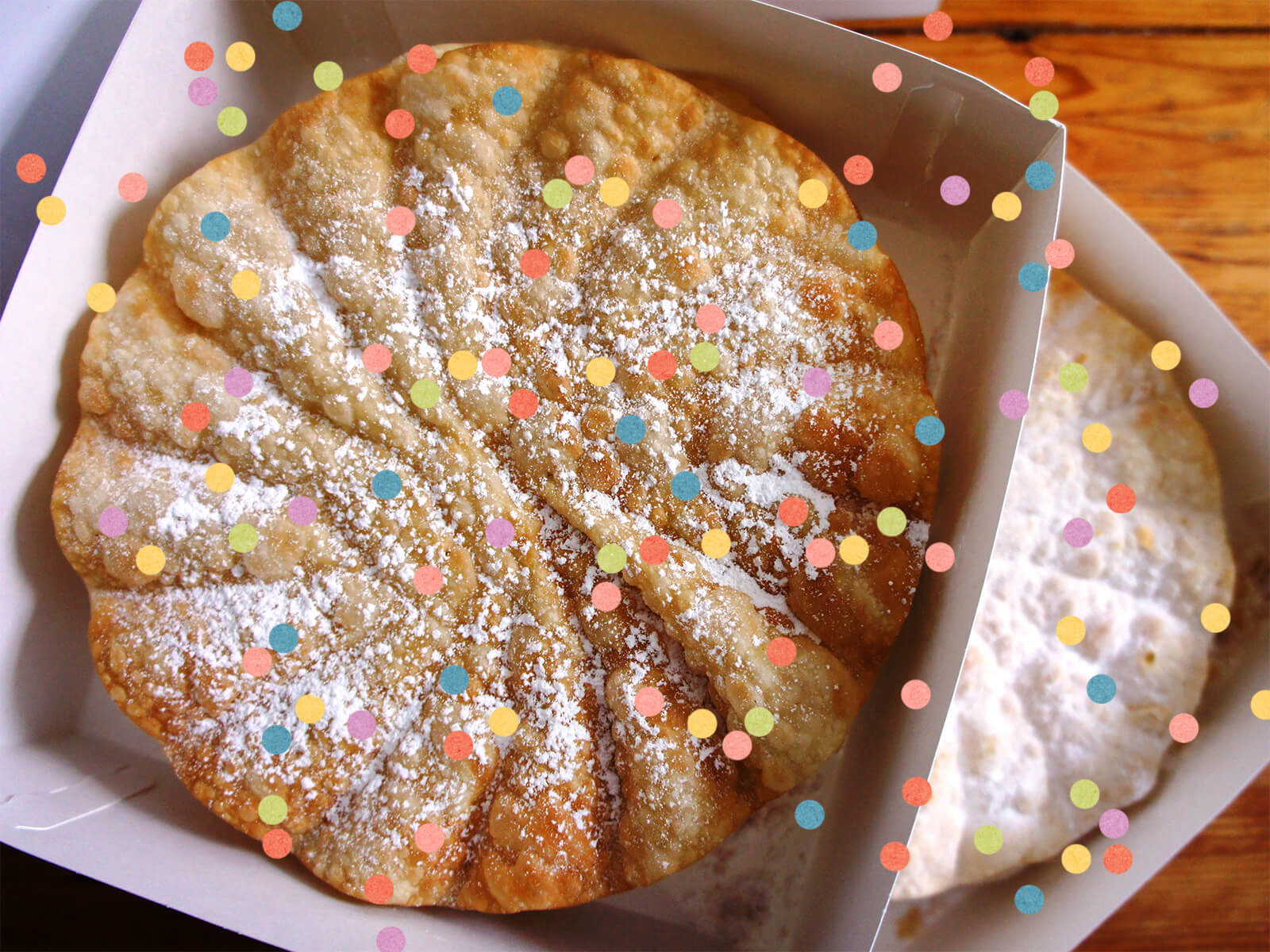
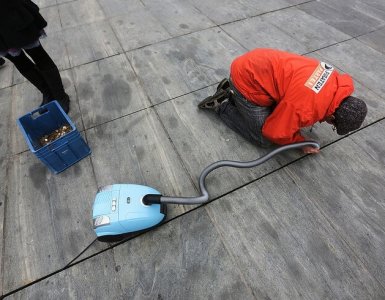


Add comment